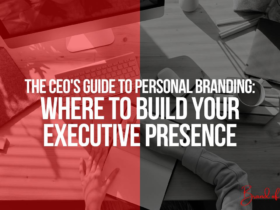Standing out in the competitive job market is more important than ever before. A strong job reputation serves as the cornerstone of professional success, embodying trustworthiness, reliability, and expertise. It’s not just about recognition—it’s about being known for qualities that foster trust and open doors to more job opportunities in various industries. As companies and individuals continue to seek success, having a reputable image is crucial for creating lasting impressions and building connections in the world of work.
Why Is Building a Job Reputation Important?
Your job reputation directly impacts your career growth and how you’re perceived in your industry. A positive reputation fosters trust and loyalty, building stronger professional relationships with colleagues, clients, and customers. Conversely, a poor reputation can limit opportunities and create challenges that are hard to overcome, affecting your ability to succeed in your field.
In a world driven by online interactions, managing your job reputation—both offline and on social media—is critical. What you say, share, and do shapes how others view you, making reputation management a vital tool for career advancement. Companies and individuals alike must ensure their actions align with their desired image to succeed in today’s fast-paced environment.
Key Elements of a Strong Job Reputation
A strong job reputation is built on five foundational elements: consistency, trustworthiness, expertise, reliability, and professionalism. Here’s how each plays a role in shaping your professional image:
1. Consistency
Consistency in your actions and communication builds trust over time. When people see you consistently follow through, they view you as dependable and reliable. In the workplace, clear and aligned messaging can reduce confusion and foster teamwork, creating a more cohesive environment where employees feel valued.
To ensure consistency:
- Align your communication with your core values and mission.
- Provide regular feedback to your team or clients to maintain transparency.
- Stick to branding and communication standards across all platforms to create a unified image.
2. Trustworthiness
Trustworthiness is earned through honesty and transparency. When you prioritize ethical practices and clear communication, you strengthen relationships and create a foundation for collaboration and mutual respect.
To build trust:
- Be open and honest in your interactions with colleagues and clients.
- Uphold ethical practices that align with shared values and company standards.
- Create opportunities for meaningful dialogue and team bonding to foster a sense of community.
3. Expertise
Expertise sets you apart in your field. It boosts credibility, attracts new opportunities, and helps establish your professional identity. Continuous learning and sharing your knowledge with others are crucial for cultivating expertise and staying ahead in your industry.
Ways to grow your expertise:
- Attend industry conferences and workshops to stay updated on trends.
- Share insights through mentorship or professional organizations to give back.
- Take on challenging projects to demonstrate your skills and commitment to growth.
4. Reliability
Being reliable shows that you can be counted on to meet deadlines and deliver quality work consistently. It’s a trait that strengthens teams and builds confidence in your abilities, making you an asset to any organization.
To demonstrate reliability:
- Use tools to track and meet deadlines consistently, ensuring timely delivery.
- Be transparent about your progress and challenges to manage expectations.
- Follow through on commitments to build trust with colleagues and clients.
5. Professionalism
Professionalism reflects your commitment to high standards in your work and interactions. It includes respectful communication, ethical behavior, and a dedication to improvement, all of which contribute to a positive work culture and environment.
To maintain professionalism:
- Regularly seek feedback to identify areas for growth and development.
- Create clear guidelines for workplace behavior and communication to set expectations.
- Invest in training that reinforces professional values and skills.
Get started with your free reputation evaluation today
How to Build a Strong Job Reputation
Building a strong job reputation takes time and effort, but it’s worth the investment. Here’s how you can start on your journey to a reputable image:
Identify Your Personal Brand
Clarify your values, strengths, and goals to define how you want to be perceived. A well-defined personal brand guides your actions and helps communicate your unique qualities effectively to others.
Be Authentic
Authenticity fosters genuine connections and trust. Be honest about your successes and challenges, and align your actions with your values. This sincerity helps build lasting relationships and a strong reputation.
Deliver Results
Consistently delivering on your promises proves your reliability and builds your professional image. Set clear goals, track progress, and adjust as needed to stay on course and meet expectations.
Communicate Effectively
Strong communication skills ensure your message is understood and respected. Practice active listening, maintain professionalism online, and adapt your tone to suit the situation, enhancing your reputation.
Network and Build Relationships
Networking opens doors to new opportunities and fosters collaboration. Attend industry events, connect with peers on social media, and build relationships based on trust and mutual respect to expand your network.
Seek Feedback and Continuously Improve
Regular feedback helps you grow and adapt to changing environments. Whether it’s from mentors, colleagues, or clients, use feedback to refine your skills and strengthen your reputation over time.
The Benefits of a Strong Job Reputation
A strong job reputation pays off in many ways, offering numerous advantages:
- More Job Opportunities: Employers value candidates with a positive reputation. A trustworthy and competent image can make you stand out during hiring, leading to more job offers.
- Higher Earning Potential: A strong reputation gives you leverage in salary negotiations, as employers are more likely to recognize your value and offer competitive pay.
- Better Professional Relationships: Trust and respect foster collaboration and create a supportive work environment, enhancing teamwork and productivity.
- Opportunities for Advancement: Being seen as reliable and skilled positions you for leadership roles and career growth, providing opportunities for advancement.
- Enhanced Personal Branding: A positive reputation increases your visibility and establishes you as a thought leader in your field, boosting your personal brand.














